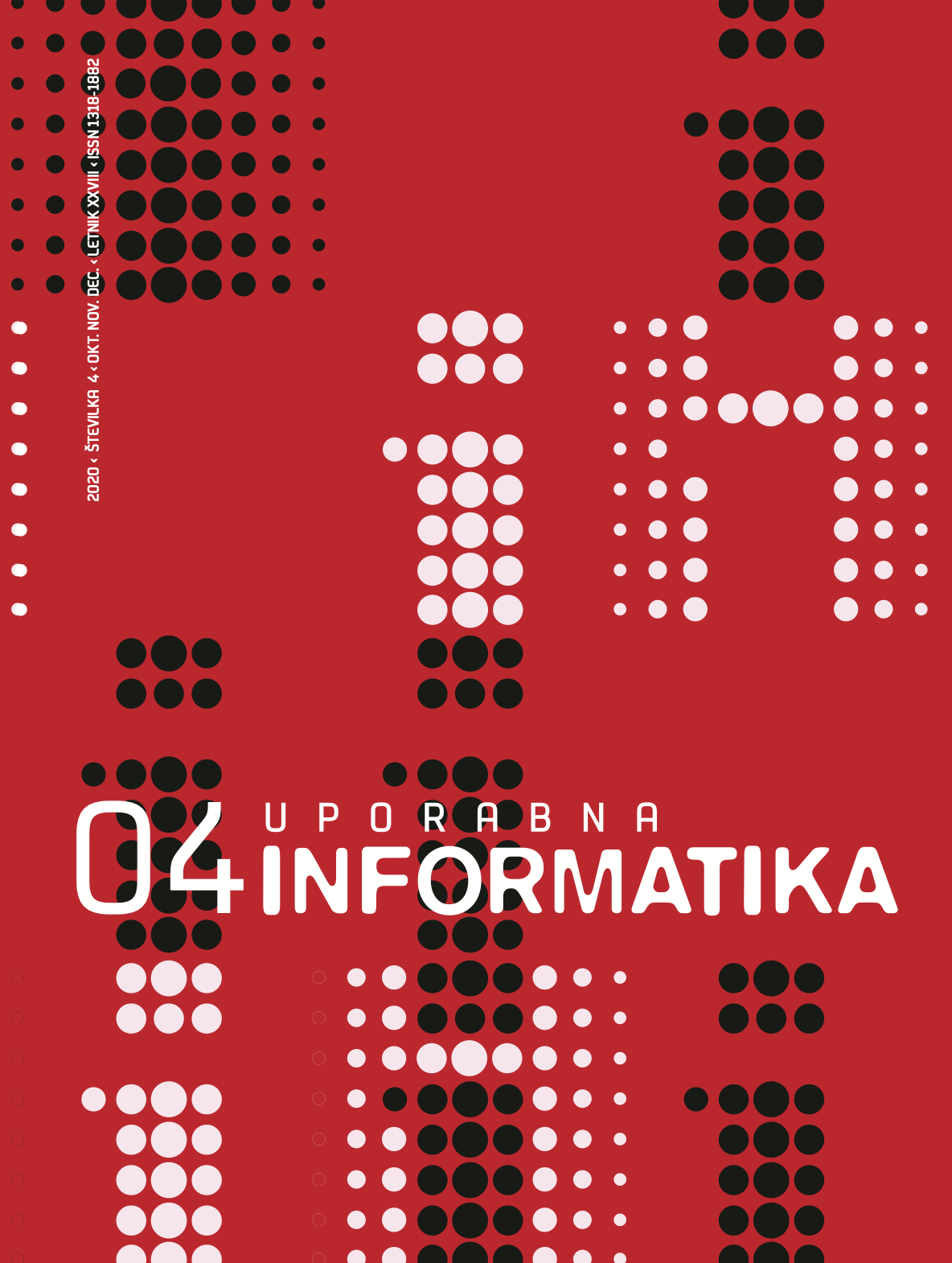Digitalization and adaptation of the psychological test for use with the eye-tracking system
DOI:
https://doi.org/10.31449/upinf.116Keywords:
mild cognitive impairment, digitization of psychological test, eye-tracking system, Corsi testAbstract
Dementia is the most common neurological disorder as around 50 million people worldwide suffer from it. Due to the aging of thepopulation, this number is steadily increasing. Research shows that signs of dementia in the form of cognitive decline are present already several years before having a clearly expressed clinical picture. If these signs could be detected in the phase of mild cognitiveimpairment (MCI), it might be possible to slow down or even stop the progression of the disease to dementia via various approaches.Currently, neurological and psychological examinations are required to make the diagnosis of MCI. Unfortunately, only a small number of patients visit a specialist while still in the MCI phase. The Corsi block-tapping test is one of the tests that psychologists use to assess the degree of visuospatial working memory impairment that may, among other, indicate MCI. The test is usually performed withphysical blocks arranged on the board in an irregular pattern. The psychologist taps the blocks in random order and the patient repeats the tapping in the same order. One way to detect MCI in a timely manner would be to digitize and automate neuropsychological testingusing available modern technologies. In recent years, eye-tracking systems have been improved substantially and their affordability has made them interesting tools for the study of neurological diseases, including the study of varying degrees of cognitive decline. In this paper, we propose an adaptation and the digitization of the Corsi test for use with the eye-tracking technology. Along with certain other tests (e.g. smooth pursuit), it would be featured in a battery of neuropsychological tasks for the automatic detection of MCI using aneye-tracking system. Such a system could be used as a screening tool at the primary health care level. It would enable physicians todetect signs of MCI and refer such patients for further examination by a specialist.






